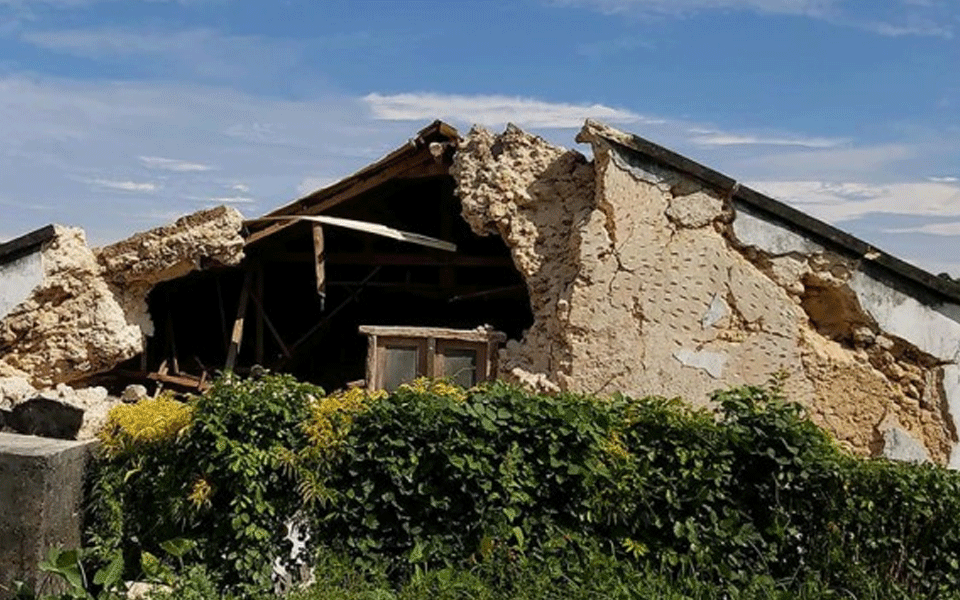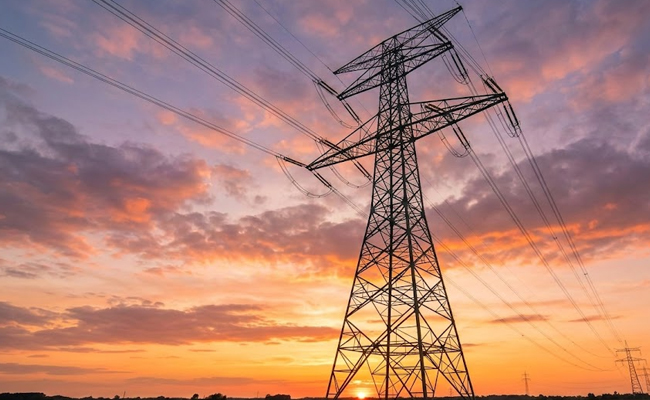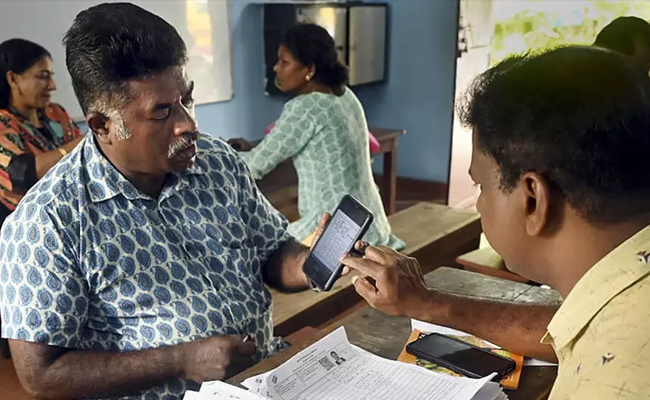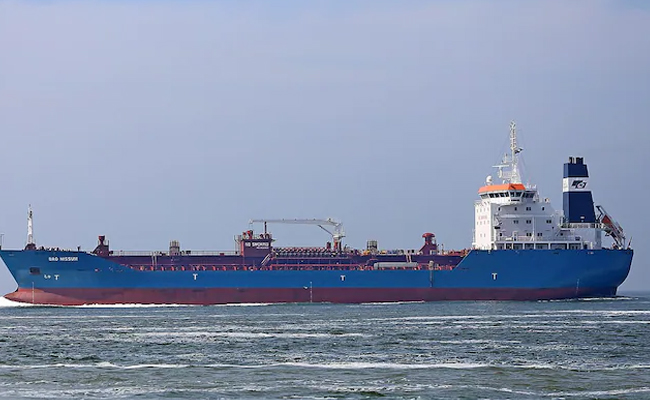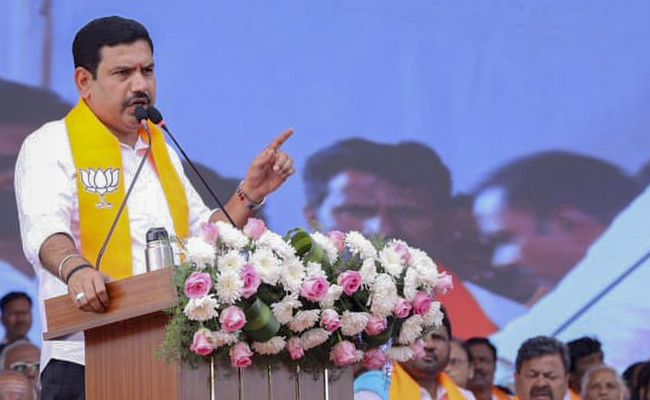Manila, Jul 27: Eight people were killed and dozens injured when a series of earthquakes struck islands in the far northern Philippines early Saturday, toppling historic buildings and sending terrified locals fleeing their homes.
The tremors hit the province of Batanes, a group of sparsely populated islets north of the nation's largest Luzon island, tearing deep cracks in roads and forcing the evacuation of a hospital.
Authorities said some of the dead, including two babies under a year old, were crushed by the walls of their own homes.
"We saw houses shaking. Some of the walls of the houses collapsed and fell on the victims," Police sergeant Uzi Villa told AFP.
"Some people died because they were sleeping soundly since it was still early," he added.
Many people were still asleep when the first tremor struck around 4:15 am (2015 GMT Friday), followed just under four hours later by a second, stronger jolt.
The biggest of the quakes of magnitude 5.4 and 5.9 struck within hours of each other, according to the US Geological Survey.
At least three aftershocks followed, which prompted edgy locals to spend hours in town squares waiting for the string of quakes to end.
Authorities said two people were reported missing, though they have not completed a search of the area because debris was blocking some roads.
Raul de Sagon, mayor of worst-hit Itbayat town, told AFP that eight people had been killed and around 100 others were hurt, including seven serious cases that had to be flown out.
Itbayat's hospital was damaged and patients had to be wheeled to safety, while at least one high school and the area's 19th-century church were heavily damaged.
Batanes is pounded every year by tropical cyclones and typhoons that blast through the Philippines and homes are built of stone to survive the annual onslaught.
"We always experience typhoons so houses here are made to withstand strong winds," de Sagon said. "But we were not prepared for earthquakes such as this."
The Philippines is part of the Pacific "Ring of Fire", an arc of intense seismic activity that stretches from quake-prone Japan through Southeast Asia and across the Pacific basin.
The country's most recent deadly quake occurred in April when at least 11 people were killed and a supermarket collapsed in a 6.3-magnitude tremor that hit a region north of the capital Manila.
Let the Truth be known. If you read VB and like VB, please be a VB Supporter and Help us deliver the Truth to one and all.
Bengaluru (PTI): The Karnataka Electricity Regulatory Commission has reduced electricity tariffs for agricultural pump sets for 2025–26 from the earlier uniform rate of Rs 8.30 per unit to a range of Rs 6.57 to Rs 7.79 per unit across the state.
However, the Commission has increased tariffs for select commercial and industrial consumers by 10 paise to a maximum of 95 paise per unit.
As per the Commission’s order, the revised tariffs are as follows: LT-3a (low-tension commercial) consumers will pay a fixed charge of Rs 235 per kW and an energy charge of Rs 7.10 per unit, while LT-5 (industrial) consumers will be charged Rs 165 per HP as fixed charges and Rs 5.20 per unit as energy charges.
In the high-tension segment, HT-2a (industrial) consumers will pay a demand charge of Rs 365 per kVA and an energy charge of Rs 6.70 per unit, while HT-2b (commercial) consumers will pay Rs 390 per kVA as demand charges and Rs 6.90 per unit as energy charges.
The revised tariffs were notified in an order issued on March 3 after the Commission allowed a review petition filed by five state-run electricity supply companies—Bangalore Electricity Supply Company, Mangalore Electricity Supply Company, Chamundeshwari Electricity Supply Corporation, Hubli Electricity Supply Company and Gulbarga Electricity Supply Company.
The order, however, does not specify the date from which the revised tariffs will come into effect.
In its earlier tariff order dated March 27, 2025, the Commission had fixed the LT-4a tariff uniformly at Rs 8.30 per unit across all ESCOMs.
Consumers in the LT-4a category — primarily agricultural pump set users — are provided free power supply, with the state government reimbursing the cost through subsidies.
According to the order, the petitioners informed the Commission that despite the Government of Karnataka allocating Rs 16,021 crore towards subsidies for free power supply to LT-4a consumers, the ESCOMs would not be able to fully recover the cost of electricity supplied under the earlier tariff structure.
The Commission noted that this would leave distribution companies with no option but to demand payment of the balance amount from farmers, leading to “unexpected and undue hardship” for the agricultural community, which it described as the backbone of the state’s agricultural production.
The reduction in the LT-4a tariff would, however, result in a revenue shortfall of Rs 2,362.47 crore compared to the tariffs considered in the order under review.
Observing that it was necessary to safeguard farmers’ interests while ensuring that ESCOMs reasonably recover costs, the Commission said the review petition could be allowed under the provisions of the Code of Civil Procedure, 1908.
The petitioners informed the Commission that the Government of Karnataka has allocated an additional Rs 2,362.47 crore, supplementing the existing budgetary provision of Rs 16,021 crore, recognising that the entire financial burden should not be passed on to consumers and must be partially borne by the government.
The petitioners further stated that they will mobilise Rs 1,107.60 crore through miscellaneous revenue.
“The balance shortfall to be met by increasing tariffs for industrial and commercial consumers, amounting to Rs 1,254.88 crore, appears reasonable and justifiable,” the Commission added.

